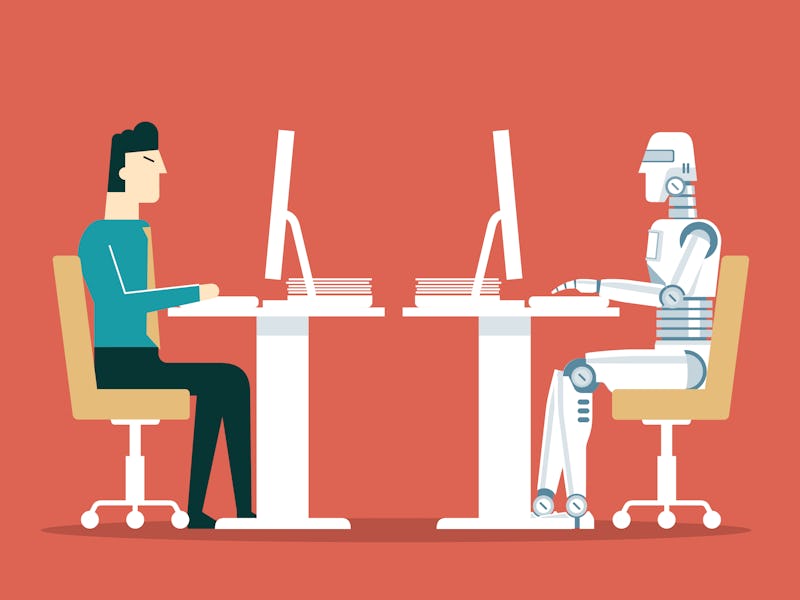New law forces companies to reveal when they use A.I. in the hiring process
But the Illinois might not go far enough.

A lot of companies are using artificial intelligence in the hiring process these days. Whether it’s A.I. that reads your face during a video interview, chatbots that conduct interviews or a range of other options, A.I. is increasingly being utilized to help determine who will be the best fit for a job. A new law called the Artificial Intelligence Video Interview Act (AIVIA) just went into effect in Illinois that will force companies that utilize A.I. in video interviews to inform prospective hires that they’re using this technology.
There are good reasons someone might want to know A.I. is being used during a video interview. Unfortunately, this kind of A.I. is often biased against certain types of job candidates. Because it is often trained on the faces of the people who developed it, which is usually white men, it can misread faces of people of color, women, transgender people and others.
This new Illinois law makes it so companies that use A.I. during video interviews must reveal it’s being used before the interview, explain what it’s assessing, the interviewee has to consent to A.I. being used, it requires that a company delete the video within a month and more. That’s a good start, but it only addresses some of the problems that come with companies using A.I. to find new employees.
A.I. is often used in the form of chatbots that conduct interviews, it can be used to screen applications and more. A.I. that judges someone’s facial expression is arguably one of the more concerning uses of this kind of technology, but it’s hardly the only way A.I. is being used to choose who gets hired.
AIVIA comes with limits. The law doesn’t allow someone to opt-out of the technology being used. You’re just informed that it will be used.
One of the top companies that sell A.I. software that can judge someone’s facial expressions is HireVue. HireVue’s program has people record themselves answering predetermined questions, and an A.I. system analyzes their face as they’re speaking. Back in August, HireVue CEO Kevin Parker wrote in a blog post that they’re not too concerned about this new law.
“At HireVue, we believe every job interview should be fair and objective, and that candidates should understand how they’re being evaluated. This is fair game, and it’s good for both candidates and companies,” Parker wrote. “HireVue and its customers have always informed job candidates of these assessments. This is business as usual for HireVue, and we’re happy to see these best practices become law for all AI vendors in the HR technology space.”
See also: Robots are conducting job interviews now
Because the technology behind these programs is proprietary, it’s almost impossible to know if the companies that are selling this kind of software are selling a product that is biased against certain types of individuals. Illinois’ new law is a step in the right direction, but it’s clear more will need to be done to ensure people aren’t losing out on job opportunities simply because of some biased A.I.